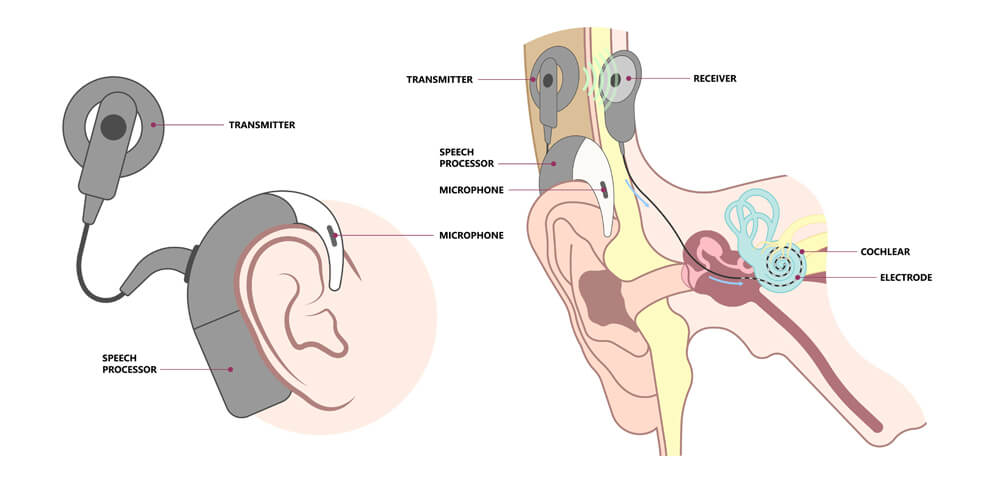
A cochlear implant is a device that is used when your speech understanding is very poor, even while wearing hearing aids. It is a surgically implanted device that utilizes both an internal array and an external processor. You must undergo a cochlear implant candidacy evaluation to determine whether this is an effective option to treat your hearing loss.
Cochlear implant screening appointments are available at all three NGA locations (Johns Creek, Gainesville, and Woodstock). Candidacy is based on the individual’s hearing ability and projected outcomes with a cochlear implant. Therefore, a comprehensive assessment is necessary.
The candidacy evaluation may consist of some or all of the following appointments:
We will test your hearing and speech understanding both with and without your hearing aids to determine if you could benefit from an implant. Testing is performed by a Doctor of Audiology who specializes in advanced hearing care.
If you do not have hearing aids, or if your current aids are not appropriate for your hearing loss, a trial period with new devices will be recommended. This step is required by the FDA to ensure that candidates for implantation are selected appropriately. If the audiologist feels that a hearing aid trial is needed, this process will be discussed with you.
The audiologist will also review how an implant works and show you the components.
If you are a potential implant candidate and would like to learn more, an appointment will be made with our cochlear implant specialist in our Woodstock office. They will determine if you are audiometrically eligible for surgery and discuss risks and benefits of an implant.
You will next visit with a cochlear implant surgeon (ENT physician) to determine if you are medically eligible for surgery. You may also need to see your primary care physician or other specialist to determine if you are healthy for surgery.
Follow-up care will be instructed by your surgeon’s office. You will return for a post-operative checkup prior to activation of your implant.
You may not be able to hear in the surgical ear after surgery until your cochlear implant is activated.
Your cochlear implant audiologist will activate the implant approximately 2 to 4 weeks after surgery. You should bring a family member or friend to this very important appointment. The audiologist will program the implant, and you will hear sounds for the first time with the implant. The quality will not sound normal but do not be disappointed or discouraged. Typically, patients describe the sound quality as robotic or “tinny.” This will improve over time.